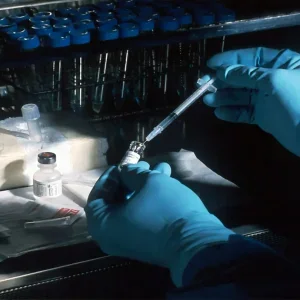
In an updated analysis from the pivotal Phase III NATALEE trial, investigational Kisqali (ribociclib) added to endocrine therapy (ET) shows a deepening benefit beyond the three-year treatment period, reducing the risk of recurrence by 28.5% (HR=0.715; 95% CI 0.609–0.840; P<0.0001), compared to ET alone, in patients with stage II and III hormone receptor-positive/human epidermal growth factor receptor 2-negative (HR+/HER2-) early breast cancer (EBC). This invasive disease-free survival (iDFS) benefit was also consistent across all pre-specified patient subgroups, including those with node-negative disease. Late-breaking data from this four-year post-hoc analysis will be presented today at the European Society for Medical Oncology (ESMO) Congress 2024.
Results were also consistent across secondary efficacy endpoints, including distant disease-free survival (HR=0.715; 95% CI 0.604–0.847; P<0.0001), with a trend for improvement in overall survival (HR=0.827; 95% CI 0.636–1.074; one-sided P value=0.0766).
“Clinicians are eager to address the substantial risk of cancer coming back as metastatic disease for patients diagnosed with HR+/HER2- early-stage breast cancer,” said Peter A. Fasching, M.D., Professor of Translational Medicine, University Hospital Erlangen and Comprehensive Cancer Center Erlangen-EMN and NATALEE trial investigator. “With longer follow-up, the clinically relevant benefit of adding ribociclib to endocrine therapy continues to improve, even after the end of ribociclib treatment, for both node-positive and node-negative patients. This is important because NATALEE includes a broad population of patients at risk of recurrence, including those diagnosed with high-risk, node-negative disease who deserve access to new treatment options to reduce that risk.”
Safety remains consistent with previously reported results with no new safety signals identified1. Adverse events (AEs) of special interest (grade 3 or higher) were neutropenia (44.4%), liver-related AEs (e.g., elevated transaminases) (8.6%), and QT interval prolongation (1.0%).
“As we anticipate regulatory action from health authorities worldwide, we are highly encouraged by these longer-term results from NATALEE showing a deepening efficacy benefit for Kisqali,” said Shreeram Aradhye, M.D., President, Development and Chief Medical Officer, Novartis. “A large number of people diagnosed with HR+/HER2- early breast cancer remain at risk of recurrence, and these results add to the growing body of evidence supporting the potential of Kisqali to reduce this risk consistently across a broad population, including patients with node-negative disease who have few options beyond ET.”
Novartis submitted NATALEE data to the U.S. Food and Drug Administration (FDA) and European Medicines Agency (EMA) in 2023, and FDA regulatory action is expected in Q3.






